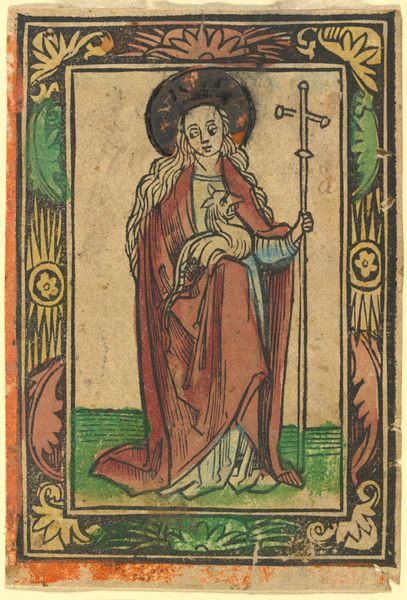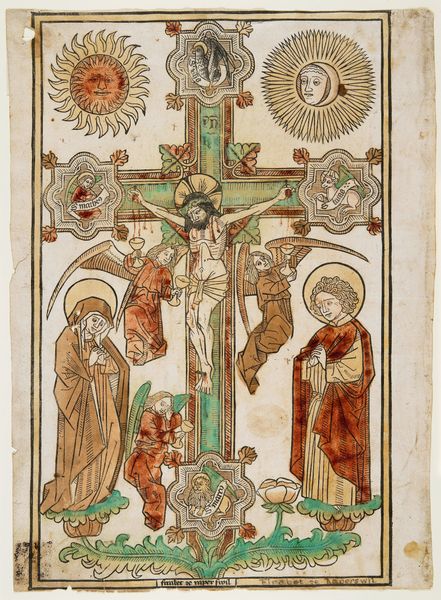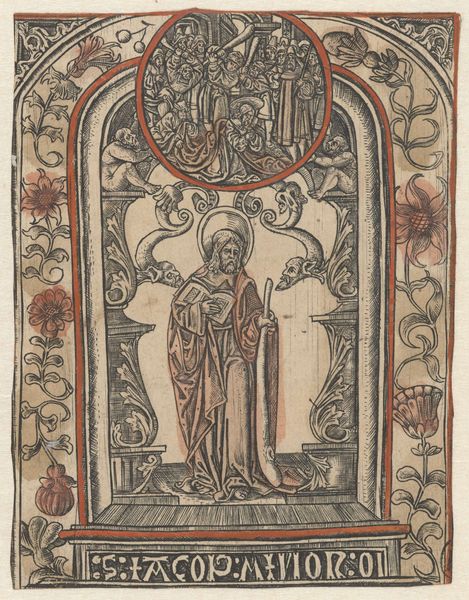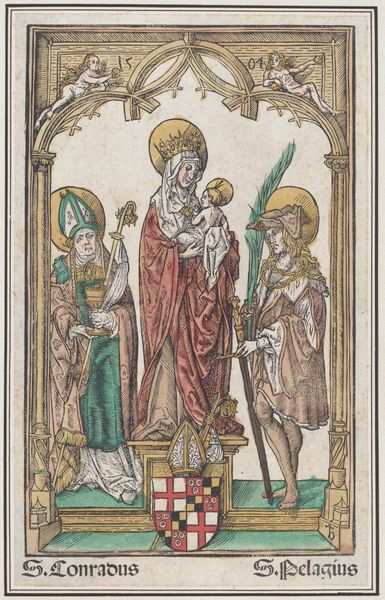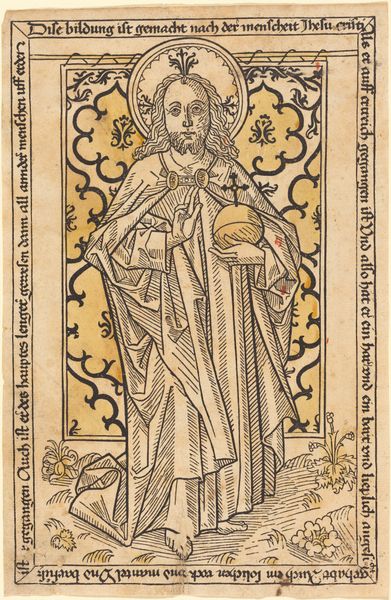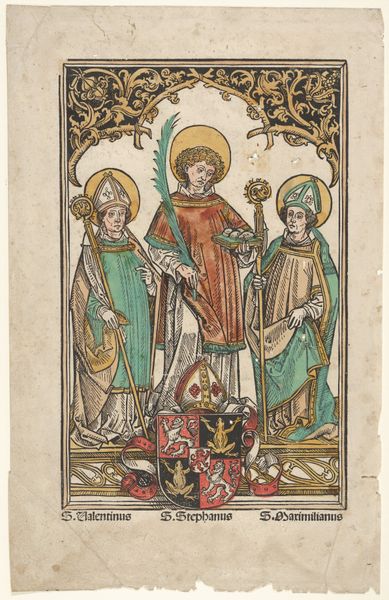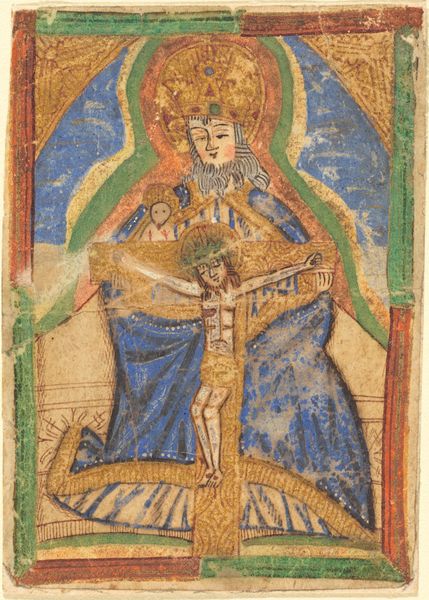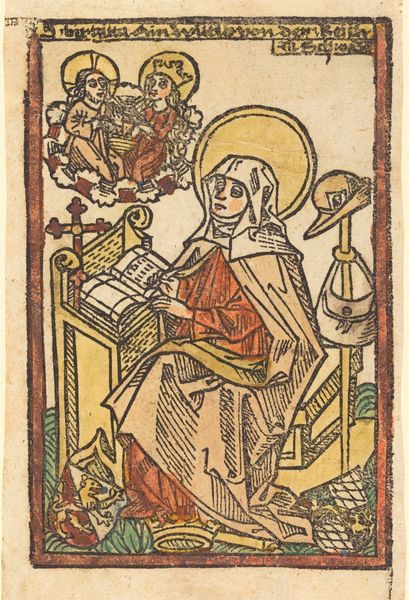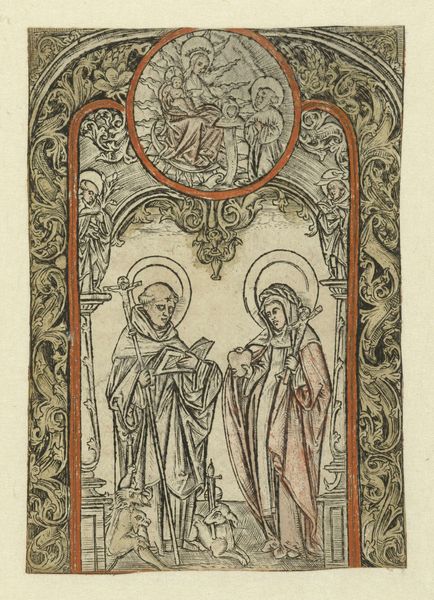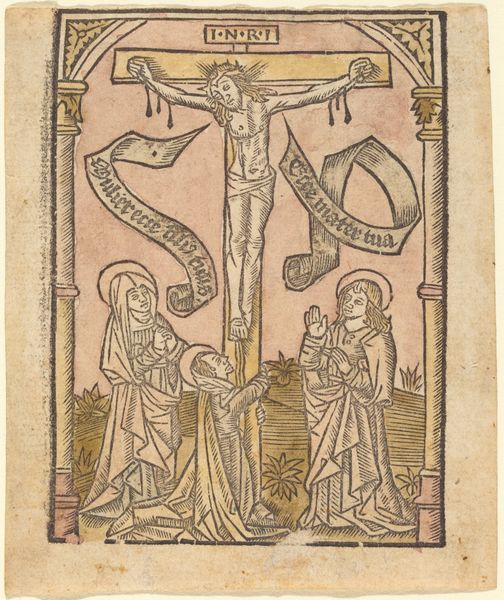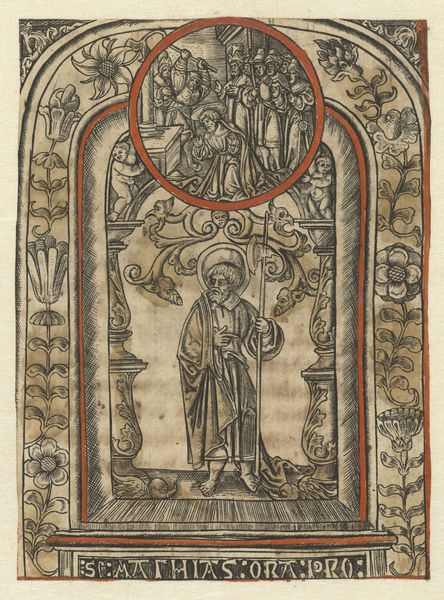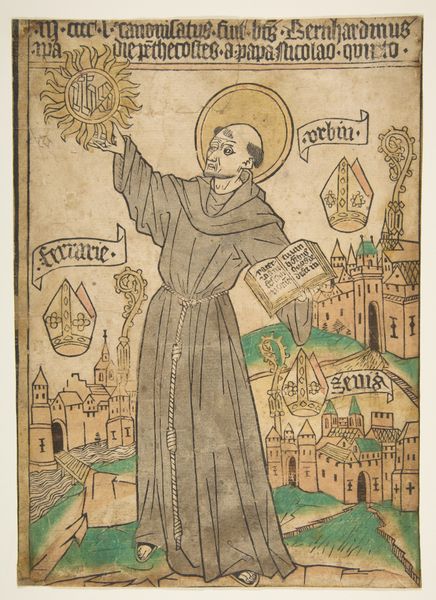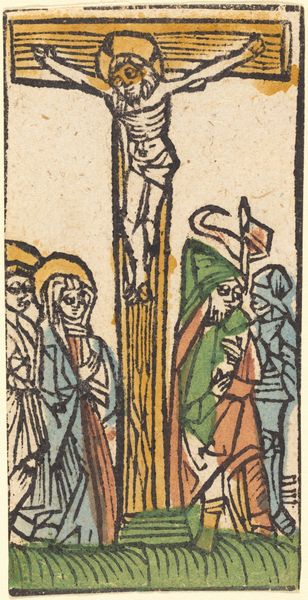
drawing, print, ink, woodcut
#
portrait
#
drawing
#
pen drawing
# print
#
figuration
#
ink
#
woodcut
#
line
#
northern-renaissance
#
miniature
Dimensions: height 169 mm, width 105 mm
Copyright: Rijks Museum: Open Domain
This woodcut depicts Saint Lebuinus, and was created in the Netherlands, probably around 1503. Commissioned by a brother Guilhielmo de Gouda for a missal, it shows us how the church sought to communicate the stories of the saints to a wide audience. The image creates meaning through a number of visual and historical associations. Saint Lebuinus lived in the 8th century and was an English Benedictine monk who became a missionary to the pagan tribes of the Netherlands and Westphalia. The flag he holds with the cross, signifies his evangelistic work, while the eagle on the shield reminds us of the Ottonian dynasty. The use of woodcut as a medium is significant; it allowed for the relatively inexpensive mass production of images, making them accessible to a broader segment of society than illuminated manuscripts, and playing a vital role in shaping popular religious culture. The historian interprets such work by considering the history of the church, the stories of the saints, and the social function of religious imagery.
Comments
No comments
Be the first to comment and join the conversation on the ultimate creative platform.
